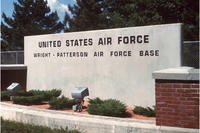A small team of U.S. troops was on the ground in Yemen and Navy ships with Marines aboard were offshore to support friendly forces against an al-Qaeda offshoot as the U.S. deepened its involvement in yet another Mideast civil war, the Pentagon said Friday.
Capt. Jeff Davis, a Pentagon spokesman, declined to say how many U.S. troops were in Yemen near the port city of Mukalla, a former stronghold of the al-Qaeda in the Arabian Peninsula terror group, or whether they were Special Forces.
Davis said it was a "very small team" that had been sent into Yemen two weeks ago and was expected to be withdrawn soon. "We view this as short term," he said.
In addition, the U.S. has been conducting anti-terror airstrikes in Yemen against the terror organization apart from the effort to assist local forces on the ground, Davis said. Four airstrikes since April 23 had killed an estimated 10 fighters, he said.
The amphibious assault ship USS Boxer, lead ship for an amphibious ready group with Marines from the 13th Marine Expeditionary Unit aboard, and two Arleigh Burke-class guided missile destroyers, the USS Gravely and the USS Gonzalez, were also positioned off Mukalla, Davis said.
The troops on the ground and the ships offshore together were providing "airborne intelligence, surveillance and reconnaissance, advice and assistance with operational planning, maritime interdiction and security operations, medical support and aerial refueling," Davis said.
At a Pentagon briefing, the spokesman was vague on the mission of the troops but stressed that they were not advising and assisting friendly forces much like similar teams embedded in Iraq and Syria.
After some back and forth with reporters on the semantics of how to characterize the troops, Davis said it was appropriate to call them an "intelligence support team. We have a small number of people who have been providing intelligence support."
Davis said that the U.S. troops were supporting forces of the United Arab Emirates, but in a sign of the complexity of Yemen's civil war, forces of Yemen's embattled government and troops from Saudi Arabia were also involved in the drive to oust al-Qaeda in the Arabian Peninsula from Mukalla.
The Saudi Embassy in Washington said in a statement "Saudi forces are also on the ground alongside the UAE forces in Mukalla and that it is a Saudi-led Arab Coalition that is fighting AQAP alongside the U.S. military contingent on the ground."
The U.S. National Counter-Terrorism Center has described the terror group as "a Sunni extremist group based in Yemen that has orchestrated numerous high-profile attacks" against the U.S. It was the organization that sent Nigerian-born Umar Farouk Abdulmutallab on a Northwest Airlines flight over Detroit on Christmas day 2009 to detonate explosives in his pants but other passengers foiled the attack.
The group's most prominent operative was the charismatic Anwar al-Awlaki, a dual U.S. and Yemeni citizen, who communicated with Army Maj. Nidal Hasan prior to Hasan's shooting rampage at Fort Hood, Texas, in 2009, killing 13 people. Al-Awlaki was killed by a U.S. drone strike in Yemen in September 2011.
Davis said that the organization remained fixated on attacking the U.S. "This is of great interest to us. It does not serve our interests to have a terrorist organization in charge of a port city, and so we are assisting in that," he said.
Yemen's civil war has killed more than 6,200 people, displaced more than 2.5 million and caused a humanitarian catastrophe in one of the world's poorest countries, according to the United Nations and human rights groups.
The war began in March 2015 when Houthi rebels, members of the Shia Zaydi sect and backed by Iran, overran the capital of Sanaa, forcing the government of Abd Rabbo Mansour Hadi to flee. A month later, al-Qaeda in the Arabian Peninsula took over Mukalla.
Saudi Arabia then came to the aid of Hadi, forming a coalition of Arab states including Bahrain, Qatar, Kuwait, United Arab Emirates, Egypt, Jordan, Morocco, Senegal and Sudan.
Davis said the U.S. involvement was specifically aimed at "at routing AQAP from Mukalla, and that has largely occurred," suggesting that the ships and troops would quickly be withdrawn.
--Richard Sisk can be reached at Richard.Sisk@Military.com.






























